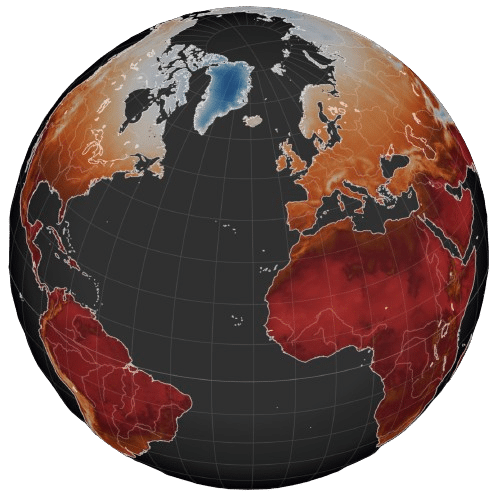Future Temperature Variability Hazard
Overview
A global dataset at 0.1° degrees resolution of twelve temperature indicators from five climate models under three Shared Socioeconomic Pathways (SSPs) scenarios from the Intergovernmental Panel on Climate Change (IPCC) Sixth Assessment report (AR6). The time resolution is annual from 1981 to 2100
Temperature variability dataset specifications
| Specification | Description |
| Experiment | CMIP6 |
| Scenarios | Shared Socioeconomic Pathways SSP5-8.5, SSP2-4.5 and SSP1-2.6. |
| Climate Models | The 5 models selected by the ISIMIP initiative: IPSL-CM6A-LR GFDL-ESM4, UKESM1-0-LL MPI-ESM1-2-HR, MRI-ESM2-0. |
| Spatial Resolution | 0.1° x 0.1° Global |
| Temporal resolution | Annual from 1981 to 2100 |
| Indicators | The temperature variability hazard indicators are based on surface daily maximum, minimum, mean temperature. For each temperature (mean, max, min) and diurnal temperature range, the dataset includes the following two statistics. – Annual mean: The annual mean of surface daily mean, maximum, minimum temperature, and diurnal temperature range (4 indicators). – Annual standard deviation: The annual standard deviation of surface daily mean, maximum, minimum temperature, and diurnal temperature range (4 indicators). |
| Format | Netcdf, other formats possible depending on data volume |
Supplementary information
The Future Temperature Variability dataset provides climate indicators that quantify the mean state and variability of surface air temperatures under historical and future climate scenarios. Each metric is calculated using downscaled daily temperature simulations from downscaled CMIP6 global climate models, enabling robust analysis across spatial and temporal scales.
Future temperature variability dataset availability
The dataset can be delivered according to your specifications, contact us for a quote.

